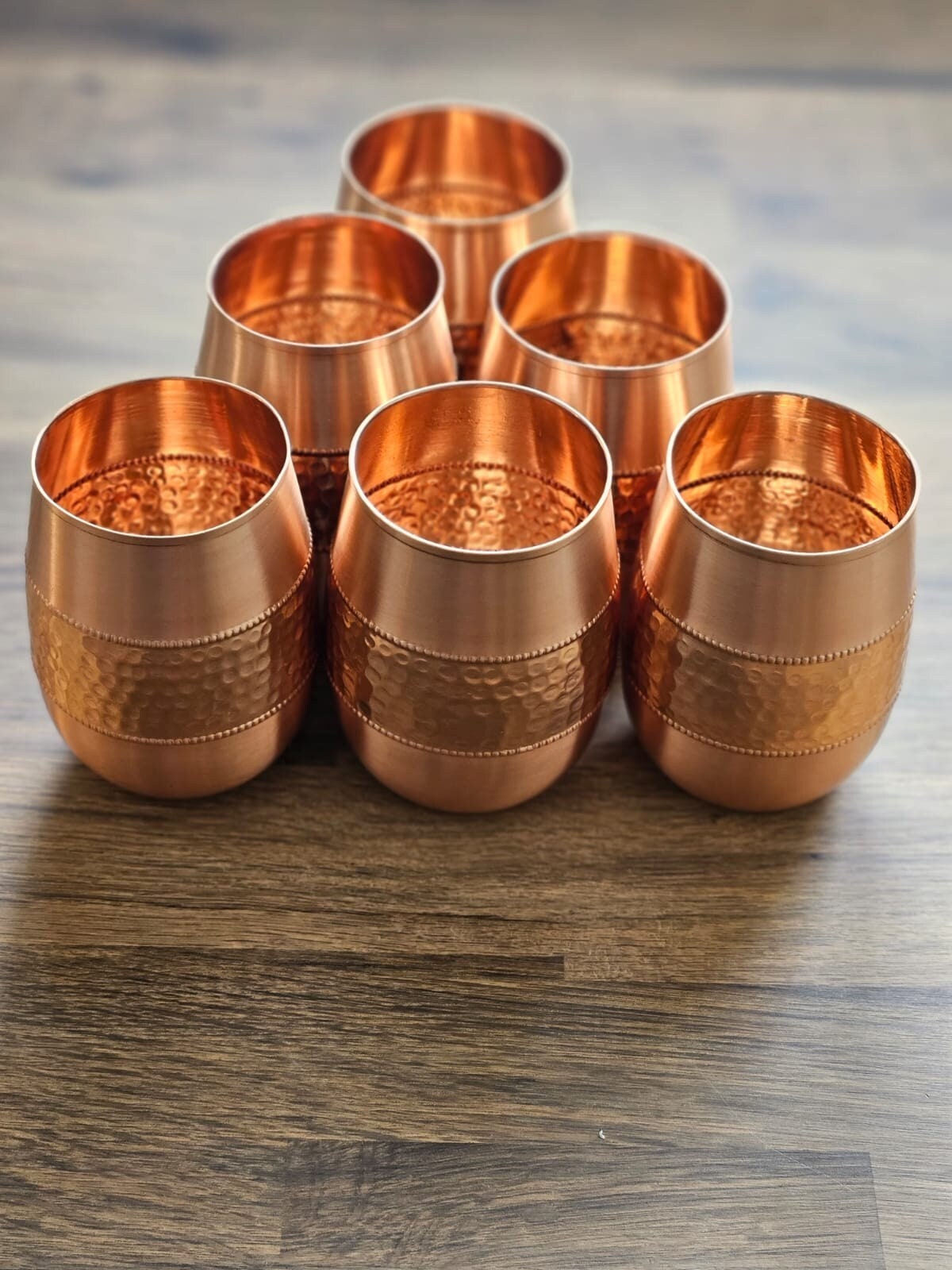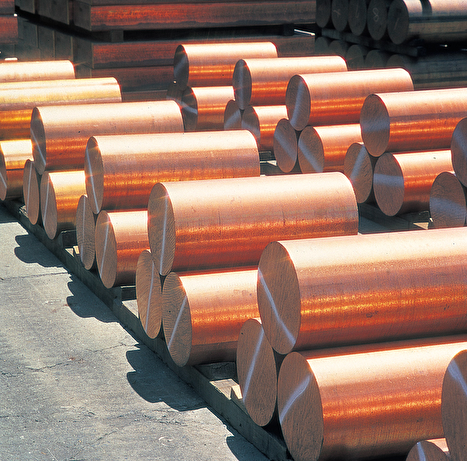Exploring the Diverse Applications of Copper Products in Modern Industries
Copper items have established themselves as essential elements across a myriad of contemporary industries, largely due to their impressive conductivity, pliability, and resistance to rust. From improving the performance of electric systems to playing a vital function in eco-friendly power innovations, the versatility of copper is noticeable. Its recyclability positions it as a lasting choice in production and electronic devices. As industries significantly prioritize technology and sustainability, the varied applications of copper require a closer exam, particularly concerning their possible effect on future technological improvements and ecological techniques.
Electric Applications of Copper
Copper is an important product in the electrical industry, accounting for roughly 60% of the complete demand for non-ferrous metals worldwide - Copper Products. Its exceptional electrical conductivity, which is virtually twice that of aluminum, makes it the preferred selection for a wide variety of electric applications. From circuitry systems in industrial and property buildings to high-voltage power transmission lines, copper guarantees efficiency and integrity in electricity delivery
In enhancement to circuitry, copper is indispensable to the manufacturing of electric elements such as generators, motors, and transformers. These components leverage copper's thermal conductivity and malleability, important for warmth dissipation and efficient efficiency. Copper's resistance to corrosion improves the life expectancy and resilience of electric systems, making it an affordable solution in the lengthy term.
The growth of renewable power resources, such as solar and wind power, has actually further increased the demand for copper in electric applications. As industries shift in the direction of lasting energy options, copper's function comes to be also much more crucial. In general, the adaptability and performance attributes of copper strengthen its status as a cornerstone material within the electric sector, driving innovation and efficiency throughout numerous applications.
Pipes and Piping Solutions
In modern plumbing systems, the option of products significantly impacts both functionality and long life. Copper has actually become a preferred option as a result of its one-of-a-kind homes, consisting of rust resistance and antimicrobial qualities. These characteristics ensure that copper piping remains safe and sturdy for delivering safe and clean water, a crucial factor to consider in property and industrial applications.
Among the vital advantages of copper in pipes is its capability to withstand high temperatures and pressures, making it ideal for a range of applications, from warm water systems to heating and cooling networks. Furthermore, copper's adaptability enables for easier setup in complicated piping designs, reducing the danger of leakages and failures.
Another noteworthy advantage is copper's long life-span, usually going beyond 50 years with appropriate upkeep. This long life not only lessens substitute costs but additionally contributes to lasting techniques by reducing waste. In addition, copper's recyclability straightens with modern environmental criteria, promoting a circular economic climate within the pipes sector.
Copper in Renewable Resource
The adaptability of copper expands past plumbing applications, playing a vital role in the renewable resource market. Its superb electric and thermal conductivity makes it a crucial product in the manufacturing and circulation of sustainable power resources, specifically solar and wind power. In photovoltaic panels, copper is made use of in solar batteries and circuitry, facilitating efficient energy page conversion and transmission. Its resistance to deterioration makes certain lasting performance, which is important for optimizing power output gradually.

Moreover, as the worldwide demand for electrical cars (EVs) boosts, copper's duty in battery systems and billing framework comes to be a lot more considerable. The product's capability to carry out electricity successfully is indispensable to the efficiency of EV batteries, boosting array and billing speed.
Copper's Role in Electronics
Electronics making counts heavily on copper's outstanding buildings, specifically its high electric conductivity and thermal effectiveness. These characteristics make copper a suitable selection for a large variety of electronic elements, consisting of ports, circuit card, and wiring. The steel's capacity to successfully transmit electric signals makes sure minimal power loss, which is crucial in high-performance digital gadgets.
Furthermore, copper's thermal conductivity plays a significant duty in heat dissipation, safeguarding delicate elements from go to these guys overheating. This is especially vital in modern-day electronics, where small designs bring about boosted heat generation. Copper is likewise preferred for its malleability and ductility, permitting it to be quickly formed right into complex designs that fulfill the demands of innovative digital applications.
With the surge of consumer electronics, telecommunications, and electric automobiles, the need for copper in the electronic devices sector proceeds to expand. Hence, copper continues to be a cornerstone material in the ever-expanding field of electronic devices.
Innovative Uses in Manufacturing

One notable application is in additive production, where copper-based materials are utilized in 3D printing procedures. This permits the development of intricate geometries and lightweight elements, especially in the aerospace and auto sectors. Furthermore, copper's thermal conductivity makes it an optimal selection for heat exchangers, enhancing effectiveness in commercial air conditioning systems.
Moreover, the increase of wise production has actually seen the unification of copper in IoT devices, where its conductive capabilities support advanced noticing modern technologies. In the world of eco-friendly power, copper is crucial in the manufacturing of photovoltaic panels and wind generators, facilitating much more effective power conversion and distribution.
As industries the original source strive for sustainability and development, copper's adaptability and efficiency continue to position it as a vital product, driving improvements in manufacturing and contributing to the development of smarter, much more efficient products.
Verdict
The essential duty of copper in eco-friendly power and its vital function in electronic devices highlight its significance in progressing sustainable techniques. Collectively, these applications show copper's crucial contribution to technological progression and industrial effectiveness in modern society.
From improving the effectiveness of electrical systems to playing a crucial function in eco-friendly energy innovations, the versatility of copper is evident. As markets significantly prioritize development and sustainability, the varied applications of copper warrant a closer exam, especially concerning their potential impact on future ecological techniques and technical advancements.
The growth of sustainable power sources, such as solar and wind power, has additionally raised the need for copper in electric applications. Overall, the adaptability and performance characteristics of copper solidify its status as a foundation material within the electrical industry, driving innovation and efficiency across various applications.
The versatility of copper extends beyond pipes applications, playing an essential duty in the eco-friendly power market.